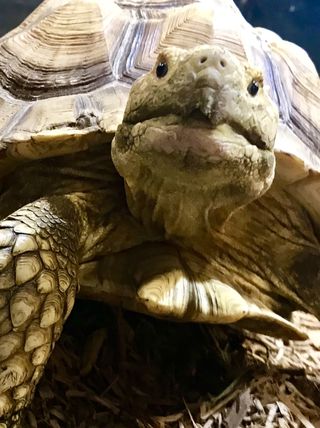Challenge your mind right now. Come up with a brief, meaningful, and defensible definition of life. Try it. How hard can it be? You know life when you see it, right? You are life. So put that search for the meaning of life on hold and simply try to explain what life means. Spoiler alert: You are likely to struggle because, to date, no one has defined life to everyone’s satisfaction.

It’s the 21st century and still we have no universally agreed upon definition of life. It seems the universe does not care about our desire for tidy categories and tight descriptions. Our intellectual comfort is irrelevant to reality. When it comes to life, gray zones and blurry boundaries abound.
This is bizarre considering life has been on our planet for more than 3.5 billion years and it’s all around us now. Life saturates Earth’s surface zone, from more than a mile deep in the crust to the stratosphere miles above. Its diversity and overall success are staggering, difficult to comprehend. For example, some scientists estimate that there are more than one trillion species alive right now. In total, Earth may have hosted more than 100 trillion species so far. Life is no stranger to us. And yet, what is it?
NASA must define life because their robots, astronauts, and astrobiologists need to be able to recognize it if they find it. The agency’s working definition is a pretty good one: “Life is a self-sustaining chemical system capable of Darwinian evolution.” Nice, but far from perfect. Few if any species are “self-sustaining”, for example. Many parasites on Earth are dependent on other lifeforms to survive, function and/or reproduce. Given the profoundly deep and wide connections of Earth life, one could argue that all lifeforms are parasites.

What about viruses? These weird/beautiful/scary “things” evolve and reproduce (with a little help from hijacked cellular victims, of course). But they fail to meet most definitions of life, including NASA’s. And yet they sure manage to get a lot done. Viruses have a massive regulatory and evolutionary influence on all Earth life. They may not qualify as living, but they certainly aren’t rocks. If a NASA probe were to discover something like a virus on another world, I’m pretty sure it would be celebrated as First Contact with extraterrestrial “life”.
Defining death can be as slippery as life. Is it merely the absence of life? What about Tardigrades? These tiny eight-limbed creatures can linger in cryptobiosis (no metabolic functions, a.k.a. death) for decades before snapping back to life. Scientists at West Chester University revived a 250-million-year-old bacterium that had been encased inside a salt crystal. Speaking of crystals, they may not evolve but they do grow, and they are highly organized. Fire consumes energy and grows, but it’s not life.

Our present inability to define life succinctly, logically and consistently is a byproduct of something we can be grateful for. The difficulty exists because living and nonliving matter are intimately tangled as partners in the same grand game. Mere being is the big show. We live inside of and are part of a universe that is exciting and endlessly fascinating. All of it together—stars, planets, moons, rocks, molecules, atoms, and “life”—make the spectacle. What’s going on down at the quantum level, as well as dark energy and dark matter, makes clear that nonlife is no less amazing and surprising than life. The fact that the two realms blur from one to the other only makes learning and discovery more thrilling. Yes, we belong to a cool clique called life, with its blurry borders and loose membership requirements, but we also belong to a larger and even more exciting club called existence.


